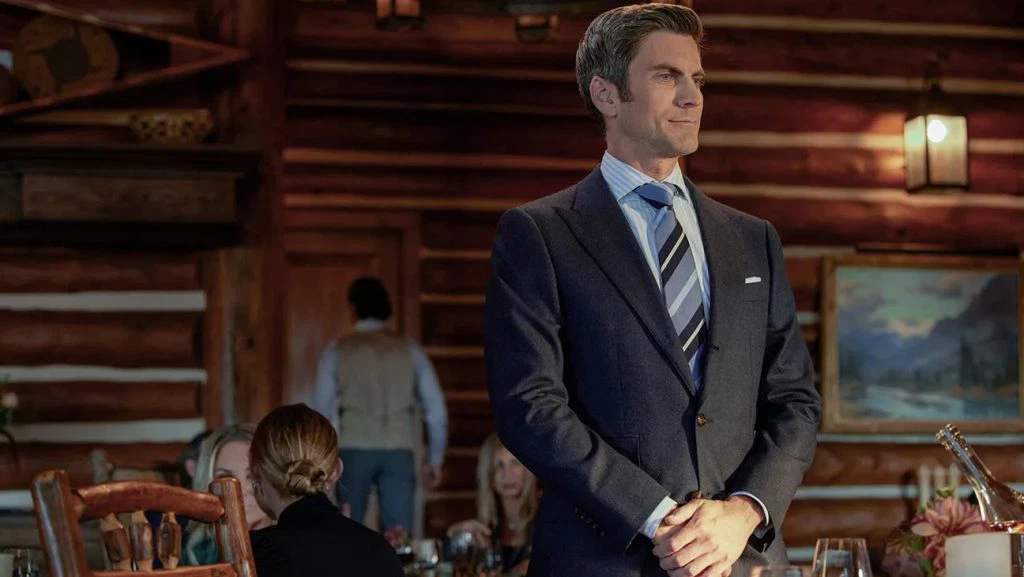Taylor Sheridan’s Yellowstone has been the root of many a concern in our modern pop culture, ranging from its transformative take on the accepted Western genre to its dialogue on the near-extinct way of ranch-cowboy lifestyle. But the most concerning take of all has been the Wes Bentley vs. Kelly Reilly arc that pits brother against sister in a toxic interfamilial war that puts Succession to shame.
Meanwhile, Yellowstone goes on accumulating spin-offs like a pampered child on a joyride – which is exactly what Paramount has offered to Sheridan and his artistic sensibilities. As the modern audience gets cultured on the ways of the West, the actors find themselves increasingly absorbed in the lives of their fictional counterparts with time.
Wes Bentley Comes to Terms With Jaime Dutton
Not everyone is privileged enough to experience the peaks and valleys of life vicariously through their fictional alter egos. For the partisans of Taylor Sheridan‘s vast and imaginative neo-Western world of Yellowstone, the story is rather different.
Out of all the problematic and traumatized Dutton children, Kelly Reilly‘s Beth has perhaps made the most significant impact on the audience. But without Wes Bentley‘s Jaime to spar with, Beth Dutton simply comes off as a monotone and one-dimensional character hell-bent on a cycle of self-loathing and self-destruction. Jaime gives her a reason to focus her hatred on an object outside of her own damaged psyche.

However, Bentley’s overarching character which perfectly balances the delicate combination of a constantly hunted brother to an affection-deprived son seeking the respect and approval of his father has to take its toll on a man. After 6 long years of playing Jaime Dutton with the utmost devotion, Wes Bentley has begun to notice the cracks in his on-screen alter ego’s psyche reflected within himself.
Yellowstone Attracts Intergenerational Trauma
Wes Bentley is not the first actor to confuse himself with the role he is supposed to play on-screen. If one intended to be rude, it could almost be labeled as a form of method acting. For decades, actors have indulged and immersed themselves completely in their on-screen counterparts, living out their lives and dishing out cruelties from behind the veil of artistic integrity.
But not Wes Bentley. The Yellowstone star has suffered – almost as much as Jaime – due to the inherent lack of a sense of belonging. The ambiguity that Jaime portrays and constantly struggles with makes him a fish out of water on top of being the family’s resident black sheep. Such duality and complexity in one character who is constantly at war with himself and against the wolves around him should not be an easy role to inherit.
Yet, Bentley performs his role with grace and an ease that makes his role so fun to watch without coming off as a burden to the audience’s ever-fluctuating tastes. Speaking to The New York Times in 2023, Bentley mused:

I’ve prided myself for most of my career on leaving it at the door, or like an athlete would say, leaving it on the field. But Jamie’s sadness permeates my life, even though I’m not sad.
Meanwhile, Christina Alexandra Voros who has directed episodes of both Yellowstone and its prequel spin-off 1883, has another take on Jaime’s personification in the show:
Everyone’s tortured on the show, but Jamie is in particular one of the more tortured characters. He’s also interesting because you never really know if he’s a villain or a hero.
Although that is true to an extent, it also stands as a pre-requisite for the anti-heroic character in a movie/show to be a de facto audience favorite. However, no such luck has been awarded to Wes Bentley due to the grievances caused by his on-screen counterpart.
Despite the audience’s support and sympathy for his chronically abused and maltreated character, and their incessant need for revenge, redemption, and vindication, the actor believes fate has brought him the part of Jaime Dutton for a reason. And Bentley intends to use his time spent in Jaime’s skin as a lesson for his own personal transformation.
